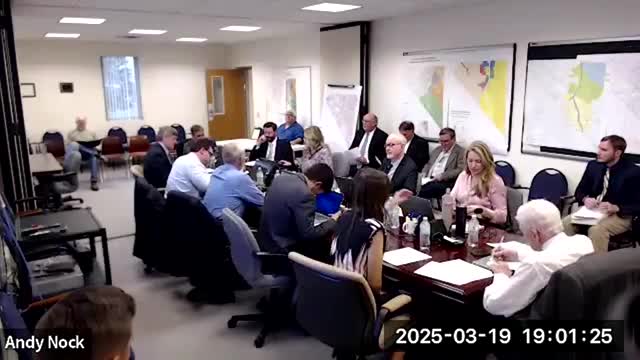Franklin Park officials discuss home-rule option to expand non-property-tax revenue; public hearing planned
Get AI-powered insights, summaries, and transcripts
Subscribe
Summary
Council members and staff discussed pursuing home-rule status or municipal authorities to raise revenue without increasing property taxes, potential impacts on stormwater fees and state-road maintenance costs, and plans for a public hearing in June.
Franklin Park borough officials discussed pursuing home-rule authority or a similar municipal structure as a way to generate revenue without raising property taxes and to gain more control over local services. The discussion at the March 19 work session centered on the costs and nonfinancial benefits of a governance change, legal limits on local fees, and next steps including a public hearing(s) and ordinance introduction in June.
Supporters said home-rule or creating new authorities could allow the borough to access new revenue streams and give more operational flexibility than the current state-governed structure. Staff and council members said they have so far emphasized the financial upside but want to better document nonmonetary benefits—such as streamlined operations—before broader outreach. Councilmembers directed staff to begin drafting outreach materials and to include nonfinancial talking points in newsletters and at public meetings.
Officials identified two specific recurring costs that feed the conversation: maintenance and replacement of stormwater pipes and catch basins on roads under state jurisdiction, and the expense of state roads that functionally fall to the borough. Council members said Pembroke required the borough to replace failing pipes and catch basins installed on a state road, and that PennDOT sometimes inspects or requires work to PennDOT specifications. Participants asked staff to quantify how many miles of borough roads are PennDOT-owned and what deferred costs the borough currently absorbs.
Legal limits and recent court rulings were a key part of the discussion. Staff said a Commonwealth Court decision and related litigation have treated some stormwater charges as taxes rather than user fees when applied to tax-immune entities; that finding undercuts the borough’s ability to impose certain stormwater fees on tax-exempt institutions. Council members noted the difference between a borough’s existing authority (property tax, earned income tax, local services tax, real-estate transfer tax) and what a home-rule municipality could enact. They also discussed statutory caps on some local levies and the potential for fee challenges in court.
Officials acknowledged up-front costs to any governance change, including consultant and legal fees and volunteer time for writing and outreach; one councilmember estimated consulting costs would likely be well under $100,000 in some scenarios but advised giving residents a range of low/medium/high estimates. Staff said the borough would need to advertise meetings, hold at least one public hearing and provide 13- and 2-day advance materials if the council introduces an ordinance at a regular meeting in June for enactment in July.
Council members asked staff to prepare a factsheet for outreach that quantifies recurring costs the borough now pays to PennDOT, outlines the limits on stormwater fees following recent court decisions, estimates likely consultant and legal costs, and summarizes the voter-referral process required for some charter amendments. Staff said they will prepare questions for outreach, try to reach officials from municipalities that recently changed governance, and include answers to commonly raised resident questions about who would pay and what might change in future tax or fee responsibilities.
The work session did not include a final vote on changing the form of government. Councilmembers set a procedural timeline: staff will prepare outreach materials and draft ordinance language for introduction at the June regular meeting, with an associated public hearing and additional explanatory sessions (open houses or HOA visits) planned in advance.
